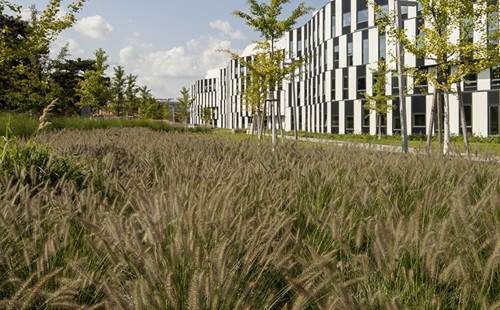Evaluation of the project "The good wood"
The NPO Competence Center of the Vienna University of Economics and Business was tasked by Coca-Cola Austria with the evaluation of the project "Das gute Holz" ("The good wood"). Within the framework of the initiative "Ideas against Poverty", the project was awarded a prize in 2010. The "Ideas against Poverty" innovation prize was initiated in 2007 by Coca-Cola Austria together with "Der Standard" and the NPO Competence Center. Its aim is to support the implementation of projects in the area of poverty alleviation and poverty prevention in Austria through an initial financial aid.
The evaluation was done by way of a Social Return on Investment (SROI) analysis with the goal of assessing the added value for society generated by the project in an as comprehensive as possible manner. Aside from the financial impact, the method is intended to explicitly also measure the social impact of the project. The present analysis is based on the model developed by the new economic foundation (nef), which basically means that, in a first step, the most important stakeholders and their objectives must be identified. After that, the input invested is compared with the output achieved and the outcome per stakeholder in an impact value chain. After that, the outcome must be translated into suitable indicators, which in turn must be corroborated by data so that the SROI value can be calculated.
Owing to health problems of the project manager, the actual programme could only start six months after the prize was awarded, namely in April 2011. The present analysis therefore covers the observation period from July 2011 to July 2012.
For the purposes of poverty alleviation, the project "Das gute Holz" pursues two fundamental goals: On the one hand, unemployed people, in particular youth, are to learn basic skills in forestry to be able to gain a foothold in the primary labour market. On the other hand, the project intends to support needy people through the supply with free firewood which the youth gather in the woods. In addition, initiatives, such as tree sponsorships or the establishment of a "Green Classroom", are to create a broad awareness among the population for wood as an asset, thus making a contribution to counter climate change.
At the beginning of the observation period, 34 youth took part in the first of a total of three phases of this employment project. As a result of job placements in the primary labour market, but also due to a lack of interest in further working in the project, the group consisted of only seven persons at the end of the analysis. In total, all youth worked approx. 1 900 hours in the project, 250 hours of which directly in the forest. As far as the supply of needy people with free firewood is concerned, in total 23 households were supplied with 142 m³ wood of a total value of close to 10 400 Euros. The mentioned initiatives against climate change, like for instance tree sponsorships or the "Green Classroom", were not realised during the observation period.
When comparing the generated total impact of € 67 176 against the investment amounting to € 68 640, a Social Return on Investment value of 0.98 results. This means that every invested Euro has created an impact equivalent to the monetised value of 0.98 Euros.
All in all, this is a very good project as far as the basic idea is concerned, which, however, in the operational implementation so far, has lagged behind the originally set targets. The SROI value of only 0.98 is mainly due to the fact that objectives have only been partially reached and some initiatives have not yet been implemented. Nevertheless, on the positive side, we wish to explicitly mention the significant voluntary engagement of the project manager within the framework of project implementation.
